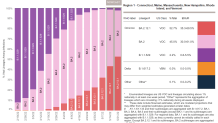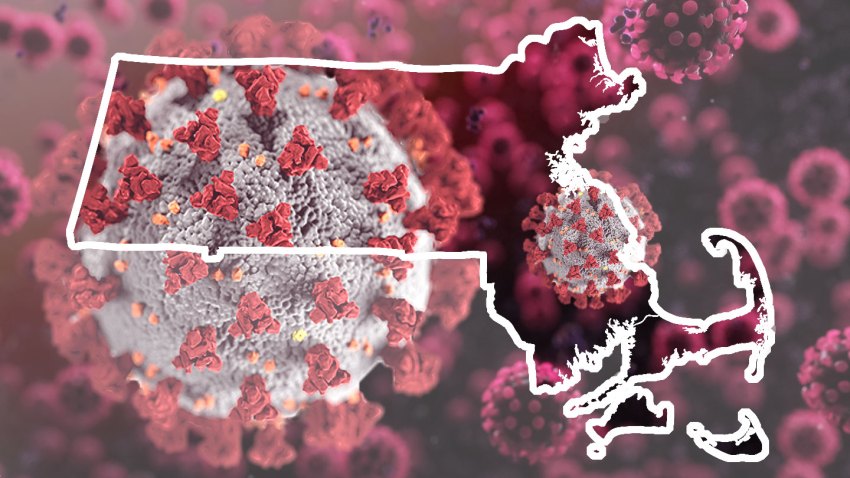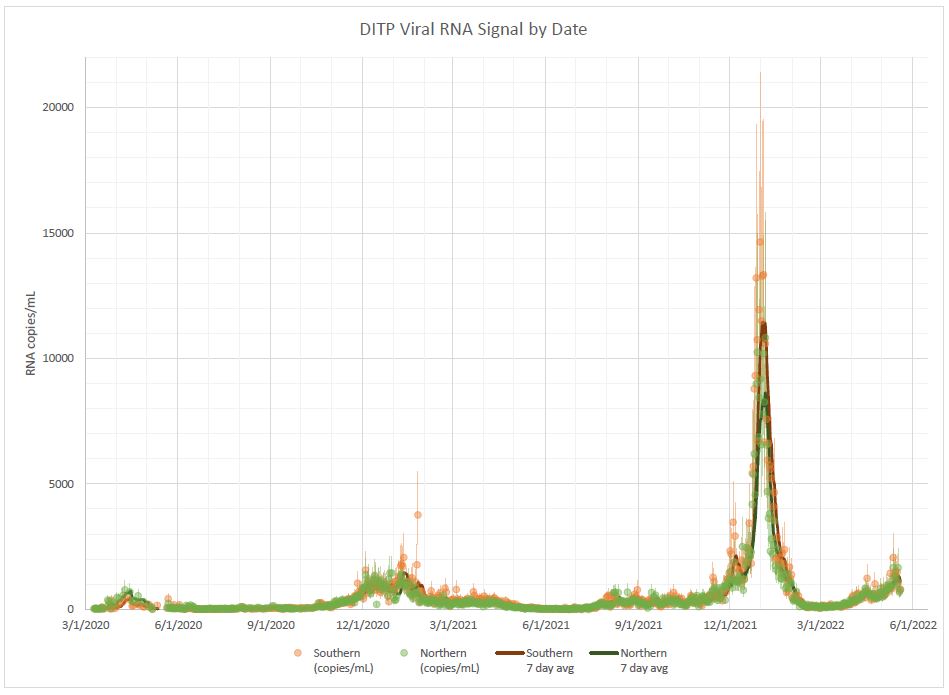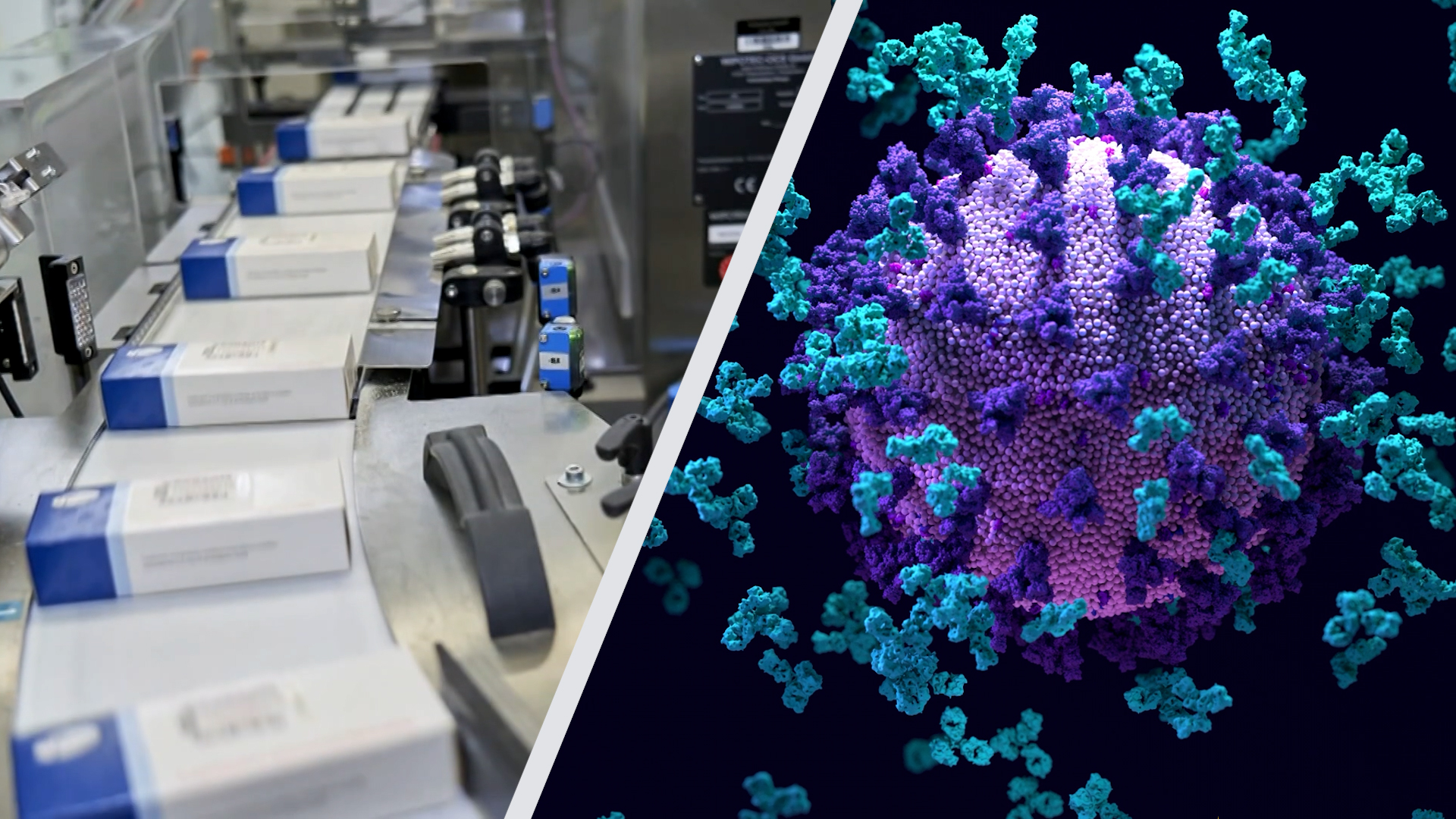A highly contagious COVID-19 subvariant now accounts for more than half of all virus circulating in New England, according to new CDC data released Tuesday.
The prevalence of BA.2.12.1 rose to 52.7% this week, compared to 45% for BA.2. Just three weeks ago, the BA.2.12.1 subvariant accounted for only 28% of cases in New England.
The BA.2.12.1 subvariant is also now the dominant strain in the U.S., accounting for 57.9% of cases, followed by BA.2 at 39.1%. Health officials say the BA.2.12.1 subvariant is up to 27% more contagious than BA.2.

Get New England news, weather forecasts and entertainment stories to your inbox. Sign up for NECN newsletters.
The New England uptick largely mirrors what's been seen in New York, where a surge in BA.2.12.1 cases -- it now accounts for 78% of cases in the Tri-State area -- has led to a fifth wave of the coronavirus pandemic.
Last week, New York COVID hospitalizations reached a 3-month high, rising 25% over just a 10-day period. And New York City health officials transitioned the five boroughs to a "high" COVID alert phase last week, meaning both the rolling new case and rolling new hospitalization rates had hit the CDC's threshold of 200 and 10, respectively, per 100,000 residents.
What is BA.2.12.1?
BA.2.12.1 is a subvariant of omicron, and emerged from the BA.2 subvariant that has been the dominant strain in the U.S. since late March, according to the CDC.
It is one of several subvariants, or “sublineages,” of the omicron variant of COVID-19, with the CDC also tracking B.1.1.529 and BA 1.1, among others.
What are the symptoms of BA.2.12.1?
According to experts, most of the symptoms of the subvariant are the same as other strains of COVID, including a stuffy nose, body aches, sore throat, sneezing, headache, coughing, fatigue and more.
Researchers in the UK found that runny nose and fatigue were slightly more prevalent in BA.2.12.1 cases, according to NBC News.
Is it causing more severe illness?
The short answer is no, and for the longer answer, omicron subvariants have generally “caused less-severe disease” than prior variants, according to the CDC, and BA.2.12.1 seems to be following that same pattern, according to experts.
There has been no data showing that vaccines are less effective against this subvariant of the virus.
Massachusetts COVID cases rising, but some positive signs
COVID cases remain high in Massachusetts right now, but there have even been some positive signs of late.
The community test positivity rate in Boston -- which excludes colleges -- has been at 11% for over a week now.
Massachusetts health officials reported 7,626 new COVID-19 cases and eight more deaths on Monday in a report covering three days' worth of data. But the state's seven-day average positivity rate went down to 8.3% Monday, compared to 9.2% on Friday.
The most recent update from the Massachusetts Water Resources Authority's COVID-19 wastewater tracker shows COVID levels holding steady after experiencing a slight dip.




